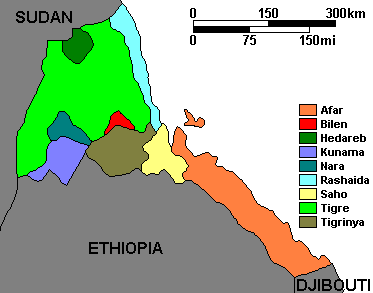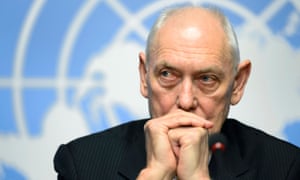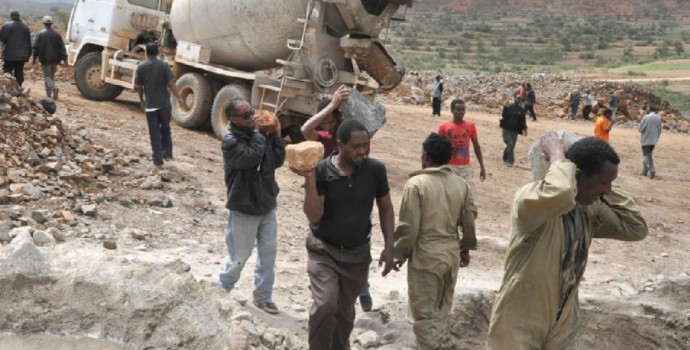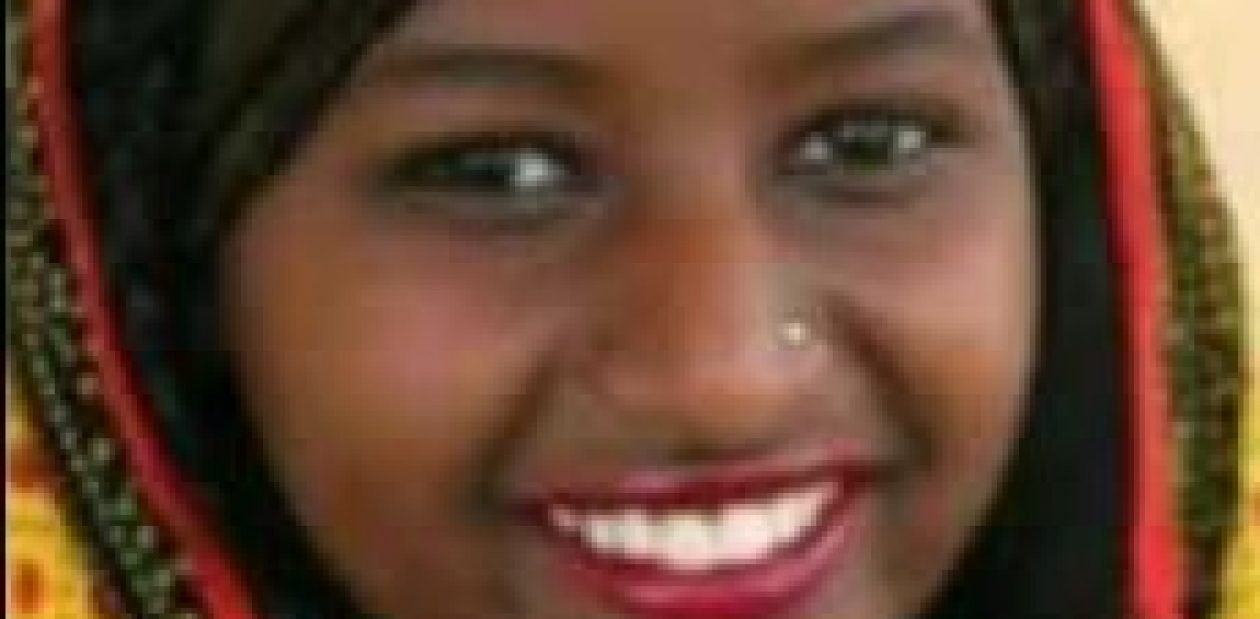Category Archives: Uncategorized
saho funny sketches
Saho Movement Leaders In Jail In Adi-Grat
The Saho Kinship Groups ‘Tribes’ and Their Customary Laws
Written by: Taha Mohammad Siraj
Posted: 11 August 2017 at Allsaho.com
Translated by: Ismail Ali Ahmad
Among many things, making laws that safeguard the rights of people, and peaceful coexistence among persons, and with neighbors as well is a feature that manifests civilization in any society.

The Saho Kinship Groups (tribes) had in similar way formulated, codified and practiced their customary laws since ancient times. These laws were rooted in their values and norms, cultures, traditions and customs. And, following their acceptance of Islam as their faith, they subscribed to the divine tenets of Islamic laws parallel to their temporal laws passed to them from generation to generation. While the Sharia jurists adjudicated on the basis of precepts prescribed to the faithful by Islamic jurisprudence in matters of marriages, divorces and inheritances, tribal elders applied clauses of their customary laws to trials pertaining to personal disputes and conflicts without contravening the tenets of Shari’a.
The Saho kinship groups were known for their prowess in defending their rights to practice their customary laws as well as preserving them parallel to divine laws for more than millennium in spite of hostile campaigns by successive colonial powers to impose mundane laws on Eritrea. They had resisted these threats and encroachements and preserved their rights to retain their Sharia and customary laws, upholding the notion that Sharia divine laws could not be tampered with since they had precedence to temporal laws of the state. There had been many episodes and instances in history in this regard that could be narrated in future.
Moreover, the Saho tribes had entered into agreements and covenants with neighboring communities for safeguarding the interest of the tribes. In this regard, the renowned treaty referred to as Meie Mahazo with the Tigrigna speaking communities in Akkele-Guzai may be cited as an historic example. Such accords, covenants and laws had served to preserve peaceful neighborly coexistence and led to harmonious relations among communities. There were also common weekly and annual markets in regions that were peaceful due to agreements and covenants that sustained strong inter-communal peace.
During the last century, the Saho tribes made historic advances towards openness to others through developing, formulating, writing and documenting their customary laws on the basis Sharia laws – features that indicate advancements in societies. To expound some of these, it can be mentioned that judges were designated to regions instead one for each tribe as happened previously for more than four hundred years. For example the Minifire instated a judge from their own tribe, and the same was true for Asawurta tribes in ways that precluded cross tribal assignments.
But after the death of the Sheikh Abdalla Ulwan in 1930, who was the judge of the Minifire, the juridical affairs of his tribes were added to the functions of Sheikh Ibrahim bin Abdalla. The latter was a member of Lelish Are of the Asawurta tribes. Thereafter, Sheikh Ibrahim bin Abdalla acted as the judge of all the Saho tribes. From that time onwards, jurisprudents represented regions and resided in urban centers such as Adi-Keih and Senafe; the era of independent judges for each tribe had been closed.
It is worth mentioning that Sheikh Ibrahim bin Abdalla was the first jurist who held the title of Qadi (judge). All of the Asawurta tribes who preceded him held the title of Faqih beginning with Sheikh Suleiman bin Shum Ahmad Kurbia of the Asawurta tribes. At that time, the title Faqih had referred to scholars and judges. Here, it can be seen that intellectual advancements began to allow for diversity and accommodation of divergent opinions among the Saho tribes, and scholarly credentials and qualifications as criteria for occupation of juridical functions instead of the previous narrow tribal affiliations, despite the social status and authority post had carried, besides the endorsement by the state. Tribal narrowness and chauvinism were abandoned in favor of scholarship and competence.
This historic progressive forward leap was followed by another. The Saho tribes developed further law making in terms of the formulation and documentation to safeguard the rights of all. Designated representatives from them collected, drafted and revised laws that was compiled in eight chapters of 191 articles and signed as the customary law of all Moslems of Akkele-Guzai on Friday, 15 Dhul Qa’da 1362 AH corresponding to 13 November 1943.
The signatories included: Nasser Basha Shum Abubaker, Cavaliere Ali Bek Mohammad, and Cavaliere Ona Ali bin Shum Suleiman and Fitwrari Abdalla Suleiman. That way, thus, the Saho tribes attained an historic forward step that closed a millennium of law making experience in the development of customary law side by side with the Sharia laws that heralded openness and diversity in their life.
Source: The memoires of Sheikh Ibrahim Mukhtar, the late Grand Mufti of Eritrea.
Ethnic Federalism in Eritrea is a recipe for disaster.
Ethnic Federalism in Eritrea is a recipe for disaster. It is a call for putting Tigrinya nationality under one banner, united and powerful. It is a step closer towards what the Agazian movement is calling for, eventually, the creation of Tigrinya/Tigrayans dominated state with its extended borders. It is asking for replacing the current Tigrinyan dominant dictator regime to another tyranny of the majority in the name of democracy.

Some might say if that is the case, why most Tigrinyans are not first to call for ethnic federalism. Of Course, if you are a decent Christian Tigrinya speaker in Asmara, you probably would be content, if your country has a multi-party democratic system, democratically elected national parliament, free market, free press and a separate judicial system. To be fair, not only if you are Tigrinyan, but also if you are a privileged individual or group, you would be satisfied, if the people in your country enjoy some basic freedoms, peace, and stability. If you are a liberal, educated and open minded individual, regardless of where you come from, you probably wanted more than what I listed; you wanted Eritrea to have some kind of decentralized government system where all groups in their regions have some kind of self-governance democratic system. You all know if these conditions are secured, you would be able to get on with your lives without fear or persecution. Most of you will know, your businesses would flourish, you would have a good harvest, your children will grow to enjoy the good education, healthy and you would have guaranteed roofs over their heads.
قبائل الساهو وقوانينها العرفية
من سمات الحضاره لأي مجتمع التعايش السلمي بين افراده ومن جاورهم بايجاد قانون يكفل حقوق الجميع.
قبائل الساهو صاغت قوانينها العرفية منذ القدم وكانت القيم الإنسانية والعادات والتقاليد هى الركيزة الاساسية لهذه القوانين. وبعد دخولهم الى الإسلام تبنت قبائل الساهو احكاما قضائيا مبنية على الشريعه الإسلاميه دون أن تتخلى عن قوانينها العرفية التى توارثتها عبر الاجيال, وكان القاضى يتولى قضايا الشريعه كالزواج والطلاق والميراث وبينما اعيان القبائل كانوا يشرفون على قضايا الخلافات والنزاعات بين افراد المجتمع مستندين على القوانين العرفية و التى لا تتعارض أصلا مع الشريعة.
لقد دافعت قبائل الساهو بشدة عن حقها في ممارسه قوانينها العرفيه وحماية القضاء الشرعي لما يقارب الألف سنه بالرغم من حملات عدائيه شرسة وتعاقب دول استعماريه على ارتريا ومحاوله هذه القوى فرض قوانينها المدنية الا ان قبائل الساهو كانت متمسكه بممارسه حقها في تطبيق قوانينها الشرعيه و العرفيه معا, حيث كانت دائما ترى ان الشريعه هى فوق قانون الدوله ولا يمكن العبث بها. وهناك حوادث وامثله كثيره في هذا المضمار عبر التاريخ ربما نتناولها في مقالات اخرى
ان للساهو اتفاقيات وعهود مع المجتمعات المجاوره لحمايه مصالح المجتمعات القبليه وعلى سبيل الذكر الاتفاقية المشهورة مع متحدثى التغرينة فى اكليغزاى والتى تسمى ب” معى محزو”. ان مثل هذه الأتفاقيات والعهود والقوانين كانت ضمانا للتعايش السلمي, وحسن الجوار,مما أدى الى علاقات وطيده بين المجتمعات , وكانت هناك أيضا اسواق مشتركه في المنطقه فمنها اسواق اسبوعيه و سنويه, وهذه الأسواق كانت آمنه بفضل القوانين والأتفاقيات والعهود التي اقيمت بين المجتمعات في المنطقه.
لقد قفزت قبائل الساهو في القرن الماضي قفزات تاريخيه تجاه الأنفتاح على الآخرين بتطوير وصياغه وكتابة وتوثيق قوانينها العرفيه المبنية على نظام القضاء الشرعي, وهذه هى من سمات الحضاره في المجتمعات
ولشرح بعض هذه القفزات النوعية نذكر كيف تم تعيين قاضي واحد لمنطقة معينة بدلا من تعيين قاضى لكل قبيلة لوحدها. وقبل ذلك ولمدة أربعمائة عام واكثر كان يعين القاضى لقبيلة معينة دون سواها. فمثلا كان لقبائل المينفري قاضي من المينفري, وقاضي لقبائل أساورته من اساورته, ولا يتولي قاضي من اساورته في القضاء داخل المينفري ,والعكس صحيح .
ففي 1930 توفي قاضي عبدالله علوان رحمة الله عليه وهو قاضي لقبائل المينفري . على اثر ذلك اضيفت قضاء قبائل المينفري الى القاضي ابراهيم بن عبدالله (وهو من بيت فقيه, بيت ليليش عرى من ألأساورته), وهكذا اصبح القاضي ابراهيم بن عبدالله القاضي الشرعي لعموم قبائل الساهو بعد ان كان قاضي لقبائل الأساورته فقط, منذ تلك التاريخ اصبح القاضي يعرف بقاضي المنطقة( قاضي مدينه عدي قيح اوقاضي مدينه صنعفي ) وانتهى عصر قاضي القبيله
وجدير بالذكر بأن القاضي ابراهيم هو اول من لقب بالقاضي وكان جميع من سبقوه من قضاة الأساورته يلقبون بالفقيه ابتداء بالفقيه سليمان بن شوم احمد كربيا اول قاضي لقبائل الأساورته. فكلمه الفقيه كانت شامله لتجمع علماء الدين والقُضاة
هنا بدء التطور الفكري في التنوع وقبول الآخر عند قبائل الساهو و اعتماد منهج الكفاءه العلميه في المناصب بدلا من الإنتساب القبلي, وبالرغم ان منصب القاضي كان من اعلى المناصب في السلطه داخل القبائل ومعتمد من السلطات وله مكانته الأجتماعيه الا ان هذه القبائل تخلت عن عصبيتها القبليه وكللت المناصب بالكفاءه العلميه.
هذه القفزه التاريخيه والحضاريه عقبتها قفزه اخرى في صياغة وتطوير وتوثيق القانون العرفي لقبائل الساهو بما يكفل حقوق جميع ابناء قبائل الساهو مما ادى الى تكليل القانون العرفي لمسلمي اكلي غوزاي بثوبه الجديد عام 1943
وقد قام ممتلوقبائل الساهو بجمع و بمراجعة و صياغه القانون العرفي لمسلمي اكلي غوزاي وتم التوقيع عليه في يوم الجمعة 15 ذي القعدة سنة 1362 هجرية الموافق 13 نوفمبر سنة 1943 من قبل بعض النظراء الآتية اسمائهم:
ناصر باشا شوم أبوبكر
كفلير أوفيشال علي بيك محمد
كفلير أونه علي بن شوم سليمان
فيتوراري عبد الله سليمان
ويتكون القانون من ثمانيه فصول ويحتوي على 191 ماده
وهكذا تمكنت قبائل الساهو من تحقيق قفزات تاريخيه وحضارية بتجاوز الألف سنه باءعتمادها القانون العرفي والقضاء الشرعي معا, وقرابه القرن من الأنفتاح والتنوع.
بقلم: طه محمد سراج
————————————
المراجع:
- مذكرات سماحه المفتي ألشيخ ابراهيم المختار مفتي الديار ألأرتريه
- allsaho.com ( لقانون-العرفى-لمسلمى-اكلغزاى)
Heavy fighting on Ethiopia Eritrea border – 12 June 2016
A heavy fighting is going on the Tsorena front of Ethiopian Eritrean border, multiple sources confirmed to HornAffairs.
Fighting in the Tsorena area of the border started since 5 am at dawn and it is still ongoing.
The sound of heavy artilleries is heard as far as Zalambesa to the east, locals confirmed.
Heavy artillery from Eritrean army have hit areas close to civilian Kebeles in Tsorena area.
Ethiopian troops reportedly advanced into Eritrean land in some areas and brought captives to the border town Gerhu-sernay, according to one local source.
HornAffairs also learned a mechanized division stationed in Mekele is partially mobilizing to the border area.

The skirmish expanded eastwards in mid-day.
In particular, the areas called Akran, Kolo berendo, and Kinin Kinito experienced fighting, HornAffairs’ sources disclosed.
Civilians in Egela area are told to evacuate the area.
There has not been shooting Zalambesa area, but the military warned residents not to move outside town.
In Sheraro, west of Tsorena and close to Badme, there are unconfirmed reports of shootings but doesn’t appear serious. However, people reported unusual military movement.
It was not immediately clear how the fighting started.
Sources claimed the Eritreans ambushed Ethiopian troops while the latter were holding a football match among Brigades. However, it is not clear whether the match was this morning or in previous days.
(Sources: Multiple Sources)
Eritrea commits crimes against humanity, UN says: 8th June 2016
UN investigation reports a litany of crimes committed in Eritrea since 1991, including enslavement, rape and murder

The chair of the Eritrea inquiry, Mike Smith, says the international community must ensure there is accountability for the atrocities being committed.
Eritrea’s government is guilty of committing crimes against humanity since independence a quarter-century ago with up to 400,000 people “enslaved”, the UN said on Wednesday.
The crimes committed since 1991 include imprisonment, enforced disappearance, extrajudicial killings, and rape and murder, said the United Nations Commission of Inquiry (COI) on human rights.
The forced labour of military conscripts is also a major problem in the country, the UN said.
“We think that there are 300,000 to 400,000 people who have been enslaved,” chief UN investigator Mike Smith told journalists in Geneva.
The government also operates a shoot-to-kill policy to stop people fleeing the country, according to evidence collected by the UN inquiry.
About 5,000 Eritreans risk their lives each month to flee the nation where forcible army conscription can last decades.
“Very few Eritreans are ever released from their military service obligations,” Smith said.
The Refugee Council’s head of advocacy, Lisa Doyle, said: “This report should send shockwaves throughout Whitehall. It confirms the ongoing gravity of the human rights situation in Eritrea; once again finding evidence of crimes against humanity.
“When a regime is on the verge of being referred to the international criminal court for gross human rights violations, it is dangerous and absurd that its citizens are being denied refuge in Britain.”
EU announces support for poverty eradication in Eritrea
| European Commission – Press release |
EU announces support for poverty eradication in Eritrea
Brussels, 11 December 2015
The European Union today has announced €200 million in new long term support to promote poverty reduction and socio-economic development in Eritrea through the 11th European Development Fund (EDF).
The European Union today has announced €200 million of new long term support to promote poverty reduction and socio-economic development in Eritrea through the 11th European Development Fund (EDF).
Until 2020, under the National Indicative Programme (NIP), the European Union will support two main areas – energy and governance. The programme has the full agreement of the EU’s 28 Member States.

Announcing the new programme on behalf of the European Union, European Commissioner for International Cooperation and Development, Neven Mimica, said: “The EU provides development aid where it is most needed to reduce poverty and support people. In Eritrea, we have agreed to promote activities with concrete results for the population, such as the creation of job opportunities and the improvement of living conditions. At the same time, we are insisting on the full respect of human rights as part of our ongoing political dialogue with Eritrea. As in other countries, the EU engages with governments around the world to promote human rights, democracy, and people-centred development everywhere. “
Support to the energy sector
In a country with one of the lowest access rates to electricity, supporting the energy sector is crucial for the Eritrean people as it will allow better access to social services, including schools, hospitals and health centres. The support will also facilitate irrigated agriculture and the development of the country’s considerable fishing potential. A more efficient energy network will have a broad positive effect on the social and economic development of Eritrea.
Support to governance
The EU’s support for governance is designed with two goals: to strengthen Eritrean capacity to better manage public finances , and to help Eritrea implement the recommendations of the Universal Periodic Review (the United Nations mechanism examining human rights performance of all 193 UN Member States). With regards to economic governance, support will be given to the production of reliable statistics, and to help build a conducive environment for the private sector.
‘Africa’s North Korea’: Why do people flee Eritrea?
More Eritreans filed for asylum in the UK in the year to June than any other nation. They face “systematic, widespread and gross human rights violations” at home, says the UN.
_LRG.jpg)
A recent United Nations report found that “systematic, widespread and gross human rights violations have been and are being committed in Eritrea under the authority of the government”.
Eritreans make up a large number of those fleeing across the Mediterranean to Europe – around 15 per cent of the total reaching Europe’s sea border are from the country.
And the reason commonly cited for the dangerous journey to Europe – Eritrea’s national service, which though legally compulsory for 18 months, in reality amounts to “indefinite enrollment in the military where conscripts are used as “forced labour”, according to the UN.
he UN report, which has been rejected by the Eritrean government as an effort to undermine the government, describes a country where people live in fear and officials and security forces carry out gross human rights violations with impunity.
Extra-judicial killings, torture, enforced disappearances and arbitrary arrest all take place, the report says.

A former Eritrean interrogator told the UN: “Torture includes beating with whips, plastic tubes and electric sticks, standing [under the sun] on a very hot sunny day at noon, tying the hands and feet like the figure of eight, tying the hands and feet backwards (known as “helicopter”), tying to trees, forcing the head down into a container with very cold water, beating the soles of the feet and the palms.
UK’s tougher asylum controls for Eritreans
The UK Government has been accused of closing the door to thousands of asylum-seekers from Eritrea in an attempt to hit its discredited immigration target.
In March, the Government announced a new policy towards Eritrean asylum-seekers, saying that conscription is no longer automatic grounds for granting asylum because Eritrea has stopped the practice of indefinite military service.
However, Human Rights Watch (HRW) has criticised the UK’s policy, saying it is based “almost exclusively” on a “discredited” Danish Government report.
The Danish document released this year claimed that Eritreans returning to their home country would not face punishment providing they signed a “letter of apology”. It also said that Eritrea had stopped the practice of indefinite military service.

HRW said there is “no evidence” that the Eritrean Government have made these changes on the ground. “The reliance on a weak and discredited report suggests the Home Office is more interested in keeping asylum seekers out than in protecting people in danger,” said Senior Researcher Gerry Simpson.
‘Africa’s North Korea’: Why do people flee Eritrea? – Channel 4 News.
